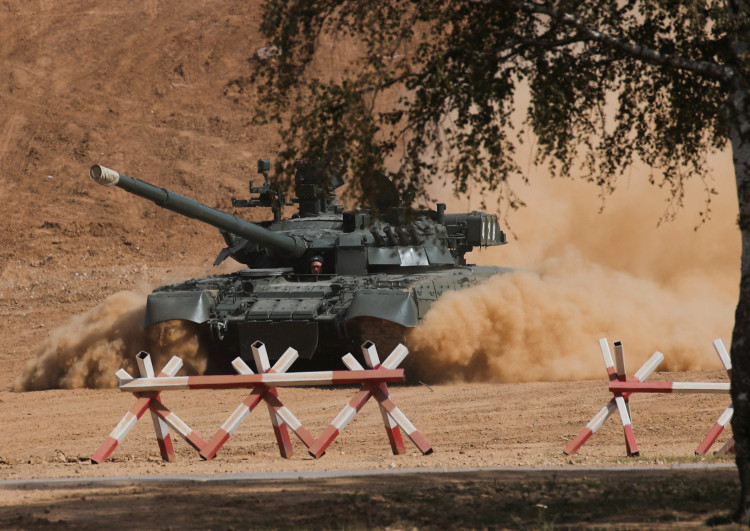Ukrainian officials said Friday that their forces had managed to kill a top Russian general. Russian Major General Andrei Sukhovetsky was reportedly killed in combat earlier in the week, but the circumstances of his death remain unclear.
Ukraine's former minister of infrastructure, Volodymyr Omelyan, said Ukrainian defense forces killed the Russian official during an armed encounter. Russian media confirmed Sukhovetsky's death but only said that he was killed during a "special operation" in Ukraine.
Russian state-owned news outlet TASS said the 47-year-old official was appointed by Russian President Vladimir Putin as the deputy commander of the 41st Combined Arms Army of the Central Military District last year. Sukhovetsky was highly decorated with two commendations for bravery during his service in Syria.
Sergei Chipilev, a high-ranking member of the Russian military officers' group, published a post on social media also confirming Sukhovetsky's death. In his post, he expressed the pain he felt in losing his friend during the nation's "special operation" in Ukraine.
Former CIA officer and station chief Dan Hoffman said that if the reports are true, then the killing of Sukhovetsky could be "big" for the Ukrainian resistance. He explained that the killing of a high-ranking Russian general by Ukrainian forces could provide a major morale boost to troops on the ground as it represents a major tactical victory.
Russian forces marched into Ukraine last week, entering the country from the north, south, and east. Despite Russia's immense numbers advantage, Ukrainian forces have put up a stiffer resistance than was initially anticipated. Intelligence reports claimed that a massive Russian military convoy is still stuck outside Kyiv, hampered with logistical issues and resistance from Ukraine's military.
Russian forces have already taken control of several military installations and key facilities, including the port city of Kherson. Major cities such as Kharkiv and Mariupol are still reportedly under siege with relentless bombardments and strikes.
Russian forces also claimed to have taken control of the territories surrounding Zaporizhzhya, Europe's largest nuclear power station, near the riverfront city of Enerhodar. The mayor of Enerhodar claimed that the attacks have caused the power plant to catch on fire, potentially presenting a major environmental threat.
The successful occupation of Ukraine's southern coastline could provide Russian soldiers with a land bridge between their country and Crimea, which they have controlled since 2014. It would also shut Ukraine off from international shipping and deal a devastating blow to the resistance.
Russia claimed to have lost less than 500 soldiers since the campaign began. However, officials in Ukraine say the total might be as high as 9,000.




